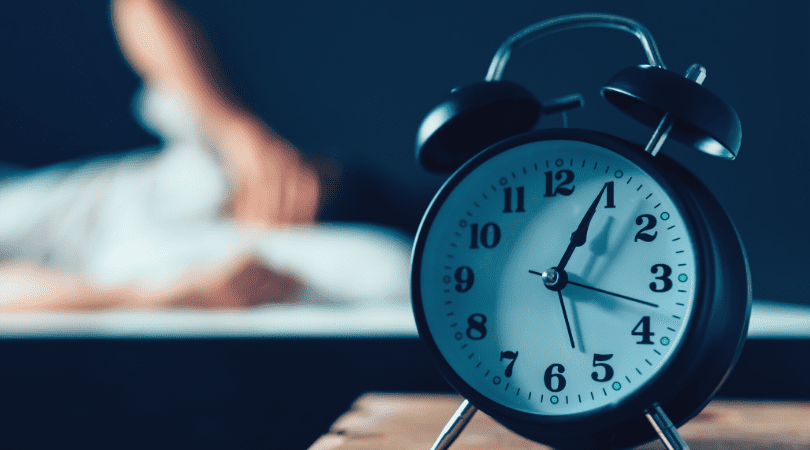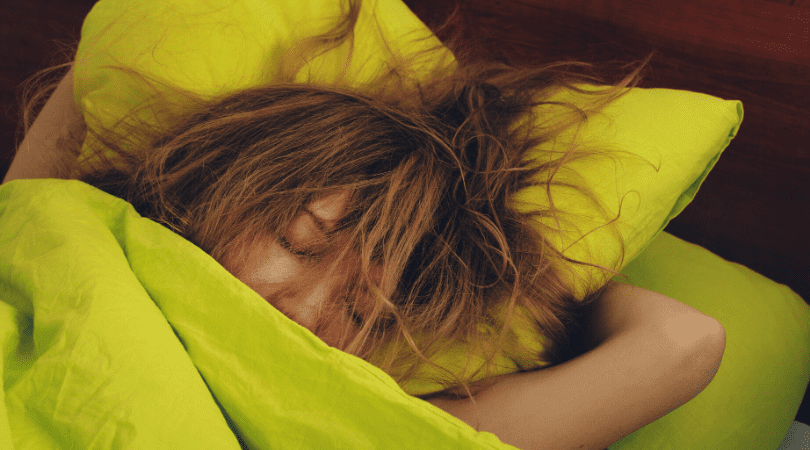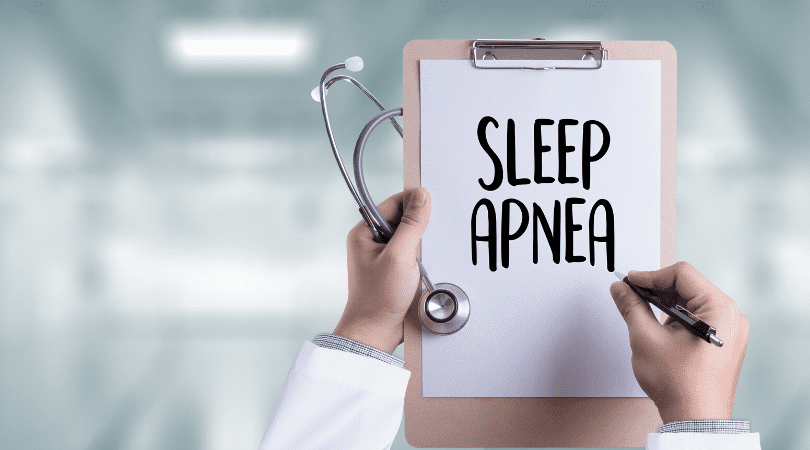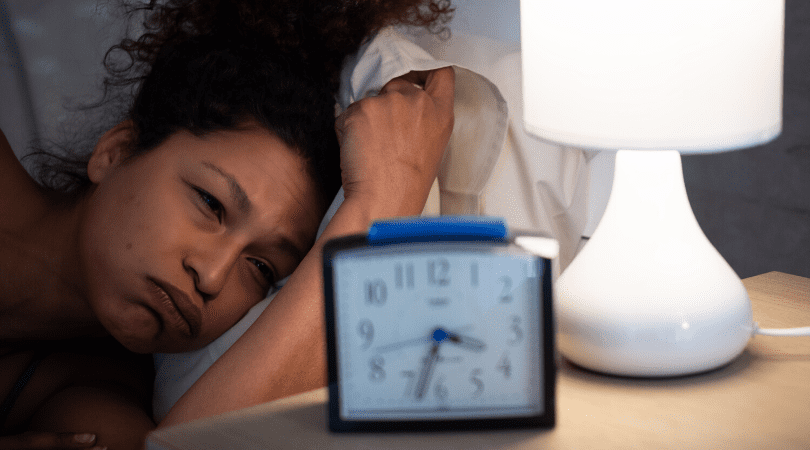By Dr. Sarah Bennett, NMD / November 25, 2019

You’ve probably heard your whole life how important it is to get a good night’s sleep, but why is that? How important is it really?
As it turns out, that was good advice. Sleep impacts so many different parts of our bodies and gives us a chance to heal and rejuvenate. Unsurprisingly, this means that sufficient sleep plays a key role in making sure our bodies function properly.
To help give you a better idea of the importance of sleep, let’s dive in to all of the important foundations that you need to know in this ultimate guide!

More than 1 in 3 American adults are not getting enough sleep according to research completed by the Center for Disease Control and Prevention (CDC). But why is this so important to address?
As we age, our sleep requirements decrease. For adults over the age of 18, a minimum of 7 hours of restful sleep is recommended each night by the American Academy of Sleep Medicine and the Sleep Research Society. Sleep is restorative and helps the body repair and prepare itself for the next day.
Restful sleep positively impacts your life by:
It’s not often that you’ll come across a fix for so many different areas in your life, especially one as simply as striving for a more restful sleeping routine. So how is sleep such a magic fix for your body

The sleep cycle includes four main stages of sleep (not including wakefulness). During this cycle, heart rate and brain waves change to enhance bodily repair and memory consolidation. The adult body requires 7-8 hours of sleep per night for full rejuvenation. During this time, the body cycles through the four stages about 4-6 times, each time increasing the duration of REM sleep and decreasing the duration of Non-REM sleep.
During this stage you are fully awake. Eyes may be open or closed, but you are fully conscious. Here you will have predominantly alpha and beta brain waves.
This is the lightest stage of sleep. It lasts 1-5 minutes and is when you change over from wakefulness to sleep. At this time, over 50% of brainwaves switch from alert alpha waves to low amplitude mixed-frequency (LAMF) activity.
Eye movement, heart rate, and breathing begin to slow here. Additionally, muscle tone begins to relax, interrupted occasionally by hyping jerks.
During Stage 2 of Non-REM sleep, a transition into a moderately deep sleep occurs. Body temperature drops, eye movement stops, there is slowed heart rate, breathing, and brainwaves.
Brainwaves slow to a low frequency delta wave with period signature wave formations called ‘sleep spindles’. K-complexes activate deeper brain structures. This stage lasts 25 minutes during the initial cycle, lengthening with each successive cycle.
The final Non-Rem stage is the deepest stage of sleep. It is characterized by low frequency delta waves as well as the slowest heart rate and breathing. Waking during this time can be difficult, causing sleep inertia or extreme brain fog if it occurs.
Stage 3 sleep is when the body repairs and regenerates, so it is the most critical for restful sleep. However, as we age, this stage becomes shorter and shorter.
Finally, REM sleep is when dreaming occurs! It stands for “rapid eye movement” since this is exactly what happens during this stage. Brain wave frequencies become closer to those seen in wakefulness and there is an increase in breathing and heart rate.
REM sleep is first entered 90 minutes after falling asleep. It increases in duration with every consecutive sleep cycle. This stage is importation for sleep consultations!
Even though sleep is one of the most important things to maintaining our health and youthful energy, our modern day society gives a badge of honor to exhaustion. Going without sleep is a status symbol that implies hard work, dedication, and superiority that stems from productivity.
Since we value productivity over sleep, we have even developed multiple expressions to casually say to each other. “Burning the midnight oil,” “pulling an all-nighter,” and “burning the candle at both ends” are just a few that come to mind. All of these should imply a negative thing – you’re burning yourself out and sacrificing sufficient sleep! Yet they instead imply that you are working hard and putting in the effort expected of you to succeed.
That being said, sleep is one of the most fundamental and vital variables that influences health and quality of life. Ironically, it is one of the biggest factors that boosts productivity as well! So while you’re sacrificing sleep in the name of productivity, you actually may be doing more harm than good not just to your body, but to your work.
The National Institute of Health reports that 30% of adults claim at least one symptom of chronic insomnia. And, while abuse of and dependency on sleep medication is one of the less common opiate problems, risks are still relatively high. In 2014, approximately 18.6 million people used sedatives to improve sleep. 1.5 million of these people reported misuse of the medication.
What is interfering with our sleep besides this unhealthy societal standard? Well, a number of things. This unfortunately means that overcoming the cultural attitude towards sleep won’t always be enough.
Some of the things that can interfere with our sleep include:
Since so many things can come between you and sleep in modern day society, it’s important to give active attention to the quantity and quality of sleep you do get. And, most importantly, it’s important to talk through it with your doctor to make sure you accurately get to the bottom of your personal sleep problems.

As you’ve probably gathered, the vital nature of sleep also implies dire consequences if you don’t get enough of it. This goes beyond seemingly minor things like occasional memory loss or falling asleep in class; it can drastically and permanently damage your quality of life.
Long term, inadequate and poor sleep increases the risk for developing comorbid conditions such as neurodegenerative diseases, pain conditions, diabetes, gastrointestinal reflux, obesity, hypertension, and even death. It is estimated that 10-15% of deaths by motor vehicle accidents are due to sleeplessness.
Now that we’re aware of how important sleep is and how many things can negatively impact it, let’s dive into what we can do to improve it. Sleep hygiene is the easiest way to improve many different areas of your life in a sustainable way, so it’s vital to address.
It is important to be consistent with bedtimes on both weeknights and weekends. This supports a proper circadian rhythm and leads to more energized and productive days.
Choose your bedtime based on when you get sleepy. This sounds easy and simple, but it can be difficult with technology, schedules, and other reasons to fight exhaustion and try to stay awake later. To make sure you are drowsy at an appropriate time in the evening, try to avoid napping throughout the day.
This may seem obvious, but think about how often you use your bed to watch TV, work comfortably, and so many other activities that require attentiveness and alertness that is inconsistent with sleep.
Limit the use of your bed to sleep and sexual activity to improve your brain’s association between sleep and bed. This will not only make it easier to fall asleep in your bed, it will also make it less likely that you will be drowsy and unfocused while trying to do other things in your bed.
The human circadian rhythm is near (but not exactly) 24 hours and is divided into two parts or clocks. The central clock consists of the suprachiasmatic nucleus of the brain while the peripheral clock consists of nearly every other organ in the body.
The central clock is dictated by light exposure. Getting out in the sun for a quick morning stroll will not only give you a boost of energy, but will also help reset your circadian rhythm.
Increased light exposure in the morning will stimulate a healthy circadian rhythm, but excess light exposure in the evening can disrupt this rhythm. Research shows that excessive screen time and junk light exposure in the evenings can delay your circadian rhythm and make it progressively harder for you to go to bed when desired.
Develop healthy habits by limiting screen time in the evening. If this is not an option for any reason, be sure to use the light filtering apps on your computers and smartphones. Also wear red-light filtering glasses while watching TV.
Keep the Room Dark and Cold
As described above, your light exposure should parallel the light from the sun throughout the day. Having the highest exposure in the morning and then weaning down in the afternoon to complete darkness at bedtime is the best way to stick with your natural rhythm.
To optimize your sleep, be sure you are in complete darkness. Get rid of all excess light by throwing away night lights, unplugging electronics, and using black-out blinds. In addition, make sure the temperature of your room is moderately cool, as extreme temperatures will disturb sleep.
Just as your central clock is dictated by light exposure, the peripheral clock is dictated by eating times. Late night dinners and eating less than 2 hours prior to bedtime has been shown to deteriorate the circadian rhythm. It also impacts the secretion of melatonin and other important endogenous signaling pathways.
Late night dinners have also been linked to the tendency to skip breakfast. This causes a delay of morning energy and increases the likelihood to overeat at lunchtime.
Be careful not to consume caffeine too late in the day as well. This may disrupt your cortisol pattern and ability to sleep. As a general rule, keep caffeine consumption to before 1 p.m.
Finally, be wary of late night alcohol consumption. Alcohol may decrease the time it takes to fall asleep, but it has been shown to reduce the duration of REM sleep throughout the night. This inhibits the body’s ability to repair and consolidate memories.
I know they are cute… but you have got to sleep separate from your pets to improve your quality of sleep. Even if you do not realize it, movement in the bed (whether it is your dog or significant other) will wake you up or throw you out of deep sleep. We are often not fully conscious of all the time we are woken throughout the night.
Morning energy and productivity may be influenced by the phase of the sleep cycle during which you are woken. For example, if you wake during phase 3 or deep sleep, you are likely to feel drowsy, have difficulty concentrating, and have low energy for one or more hours.
To avoid this, try waking up gradually with the sun or use a sleep cycle alarm such as smart watch or phone app.

If you wake during the night and struggle longer than 20 minutes to fall back asleep, get out of bed and reset. It may seem counterintuitive, but this will help prevent negative associations between your bed and stress.
Do a soothing/boring activity that is not screen-related. Avoid your phone, computer, TV, and turning on any additional lights. Cover the clock to avoid adding to any stress about not sleeping. Meditate for 10-20 minutes as it has shown to improve sleep.
If this happens frequently, be sure to rule out sleep apnea. This is a common cause of mid-sleep walking and can increase your risk of cardiovascular disease.
Getting sufficient, quality sleep can be much easier said than done, but hopefully this guide shows just how important it is to make a conscious effort.
Even if you still struggle with getting a healthy amount of rest, at least you now know the consequences if you don’t! The important takeaways are:
Hopefully you are able to work on at least a few of the tips to help improve your sleep. This way, you’ll be a few steps closer to a sustainable, healthy sleep schedule. What are the things that are keeping you awake at night? What are you looking to change?
Hello, my name is Dr. Sarah Bennett, NMD!
I am a naturopathic physician licensed in the state of Arizona currently practicing at my office in Scottsdale, AZ. I received my degree from Southwest College of Naturopathic Medicine, did a year residency at Keystone Natural Family medicine, and received additional training for aesthetics & anti-aging at National Laser Institute.
My passion and fascination for natural medicine began during my undergraduate studies at Indiana University where I got a dual degree in neuroscience & psychology.
I saw how a preventative approach could help you live a long and youthful life. Since then I have dedicated my life to serving others to understand the latest medical trends.
I spend my spare time running, hiking, rock climbing, camping, testing out new diets, and reading books on latest medical trends / listening to podcasts to find the latest nuggets of knowledge to improve the quality of life for my patients. I look forward to serving you!